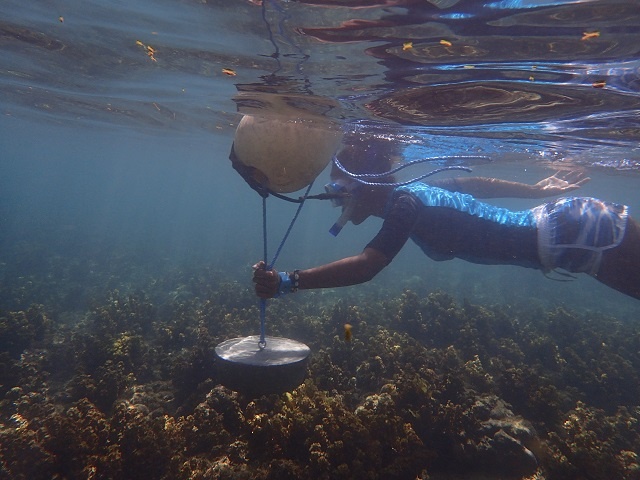Revenue collected for the first-ever project to adopt a terrapin, turtle or a coral in Seychelles by a not-for-profit organisation is being used for monitoring and restoration activities to further protect these species.
The project leader of the C(MCCS), Nora Von Xylander, told SNA that “if you have adopted a turtle or coral, you have helped us greatly in terms of maintaining and running our conservation base activities and the project itself.”
She said the money collected “has helped us fund equipment failure and the purchase of new equipment to maintain the coral tanks as well as any maintenance that is needed for the ocean-based nurseries.”
MCCS has had adoption programmes for many years focusing primarily on whale sharks and sea turtles. The programme was expanded to corals in 2017 and terrapin turtles in 2018.
According to MCSS — 29 sea turtles, 5 terrapins and 331 coral were adopted through the project by nature-lovers. Adoption for each of these species cost $40, $30 and $25 respectively.
Von Xylander said that the willingness of people to continuously engage in the MCSS project shows the level of understanding among the public in regards to the importance of protecting corals and conserving species like sea turtles.
To adopt a sea turtle or terrapin, although you will not be able to take it home as a pet, the adopter will receive an adoption certificate and photographic updates on when the reptile friend has been encountered again.
The 115-island-archipelago in the western Indian Ocean is home to three types of terrapin — the Seychelles Black Mud Terrapin, the Seychelles Yellow-bellied Mud Terrapin and the Seychelles Terrapin.
Locally known as ‘torti soupap’, terrapins are believed to have been introduced in Seychelles from the African continent or the neighbouring island of Madagascar as a source of food for slaves. In time, due to predators, lack of habitat and possibly pollution, their numbers have been dropping on most of the islands.
Von Xylander said that “this is why it is important for us as conservationists to organise such projects to create awareness on the dropping number of these species and to raise funds to support our programmes.”
For the adoption of coral, people may adopt one from either of the organisation’s coral tank nurseries at Fishermen’s Cove hotel or the underwater rope nurseries at Hilton Northolme resort.
Le Meridien Fisherman’s Cove hotel has launched the second phase of its ‘Unlock the Sea’ programme. (Marine Conservation Society Seychelles) Photo License: CC-BY
If adopters are not able to come and choose their coral in person, an electronic coral catalogue will be sent from which people are able to choose the coral they wish to adopt. The person will receive a hard copy adoption certificate which will contain information on who adopted the coral, the given name to the coral, the coral number and the date of the adoption.
The adopter will also receive an email containing an online version of the coral adoption certificate, along with a picture of the chosen adopted coral, and a fact sheet regarding corals and coral restoration.
An update about the coral will be sent to the adopter every six months. Once the coral is transplanted, the adopter will be informed and will be sent a GPS location of where it has been transferred.
By the end of the year 2019, these projects allowed the successful propagation of approximately 400 coral which have been transplanted to the natural reef.
“Approximately 70 percent of corals transplanted from the nursery to the sea is a success. Most of them keep on growing once transplanted if they manage to survive in the first place. I have actually noticed for the tanks corals, once we transplanted there growth rates improved a lot once put back into the ocean,” said the project leader.
As a small island state, Seychelles relies heavily on the fisheries industry — the second top contributor — for sustenance.
Source: Seychelles News Agency

